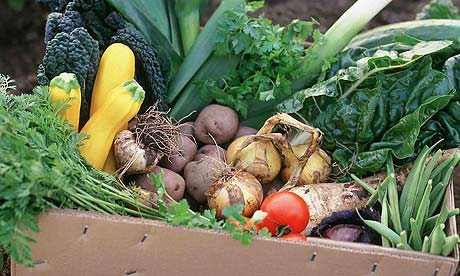 From horsemeat in burgers to poverty related hunger, food is in the headlines in the worst possible way. Yet as food prices continue to rise and cities grow, the shortage of affordable and healthy food looks set to worsen. So what can an old mill in Salford do to bring sustainable and wholesome fare to our cities? Arwa Aburawa investigates.
From horsemeat in burgers to poverty related hunger, food is in the headlines in the worst possible way. Yet as food prices continue to rise and cities grow, the shortage of affordable and healthy food looks set to worsen. So what can an old mill in Salford do to bring sustainable and wholesome fare to our cities? Arwa Aburawa investigates.
With central government examining the surge of emergency foodbanks and charities warning of an increase in poverty-related hunger, it’s clear food insecurity is on the rise. The horsemeat scandal may have raised a lot of questions about our supermarkets but more daunting questions are now being asked about how we protect the poorest from rising food prices. How can we make healthy food more accessible in the wake of the cuts? And can cities really feed themselves? Manchester International Festival and the Biospheric Foundation in Salford are working together to answer these very questions….
Read on below:

 An avenue of trees in Alexandra Park, Whalley Range, Manchester.
An avenue of trees in Alexandra Park, Whalley Range, Manchester.
 Whilst it’s easy to think that all those people ‘really vulnerable’ to climate change live in far away places, the truth is they don’t. They live in cities great and small all over the world. And there are some living right here in Manchester. Who are they? Well, there are the marginalised, the socially, economically and politically vulnerable. They are our old, our BME, our asylum seekers and refugees and whilst our climate keeps changing, we ought to figure out a way to protect them.
Whilst it’s easy to think that all those people ‘really vulnerable’ to climate change live in far away places, the truth is they don’t. They live in cities great and small all over the world. And there are some living right here in Manchester. Who are they? Well, there are the marginalised, the socially, economically and politically vulnerable. They are our old, our BME, our asylum seekers and refugees and whilst our climate keeps changing, we ought to figure out a way to protect them. Manchester Climate Monthly co-editor Arwa Aburawa travels all the way to Brussels and sees parliamentarians decide that European states must now take account of the “sub-national context” when measuring their greenhouse gas emissions. What does this mean for Manchester? Read on…
Manchester Climate Monthly co-editor Arwa Aburawa travels all the way to Brussels and sees parliamentarians decide that European states must now take account of the “sub-national context” when measuring their greenhouse gas emissions. What does this mean for Manchester? Read on… As an advocate of ‘free love’, a pacifist and more controversially a secularist, the Victorian feminist Elizabeth Wolstenholme Elmy did not exactly lead a conventional life. Born in Eccles in 1833 and self-educated, she went on to become a significant pioneer of the British women’s emancipation movement. She was at the heart of almost every Victorian feminist campaign ranging from the demand for better education, the right to vote, the rights of prostitutes to the sensitive issue of marital rape.
As an advocate of ‘free love’, a pacifist and more controversially a secularist, the Victorian feminist Elizabeth Wolstenholme Elmy did not exactly lead a conventional life. Born in Eccles in 1833 and self-educated, she went on to become a significant pioneer of the British women’s emancipation movement. She was at the heart of almost every Victorian feminist campaign ranging from the demand for better education, the right to vote, the rights of prostitutes to the sensitive issue of marital rape. Arwa Aburawa explores whether a religious take on banking offers any alternative for ethical consumers.
Arwa Aburawa explores whether a religious take on banking offers any alternative for ethical consumers.


 Organic veg – in this case from the Ethical Superstore. Photograph: Organic Picture Library/Rex Features
Organic veg – in this case from the Ethical Superstore. Photograph: Organic Picture Library/Rex Features